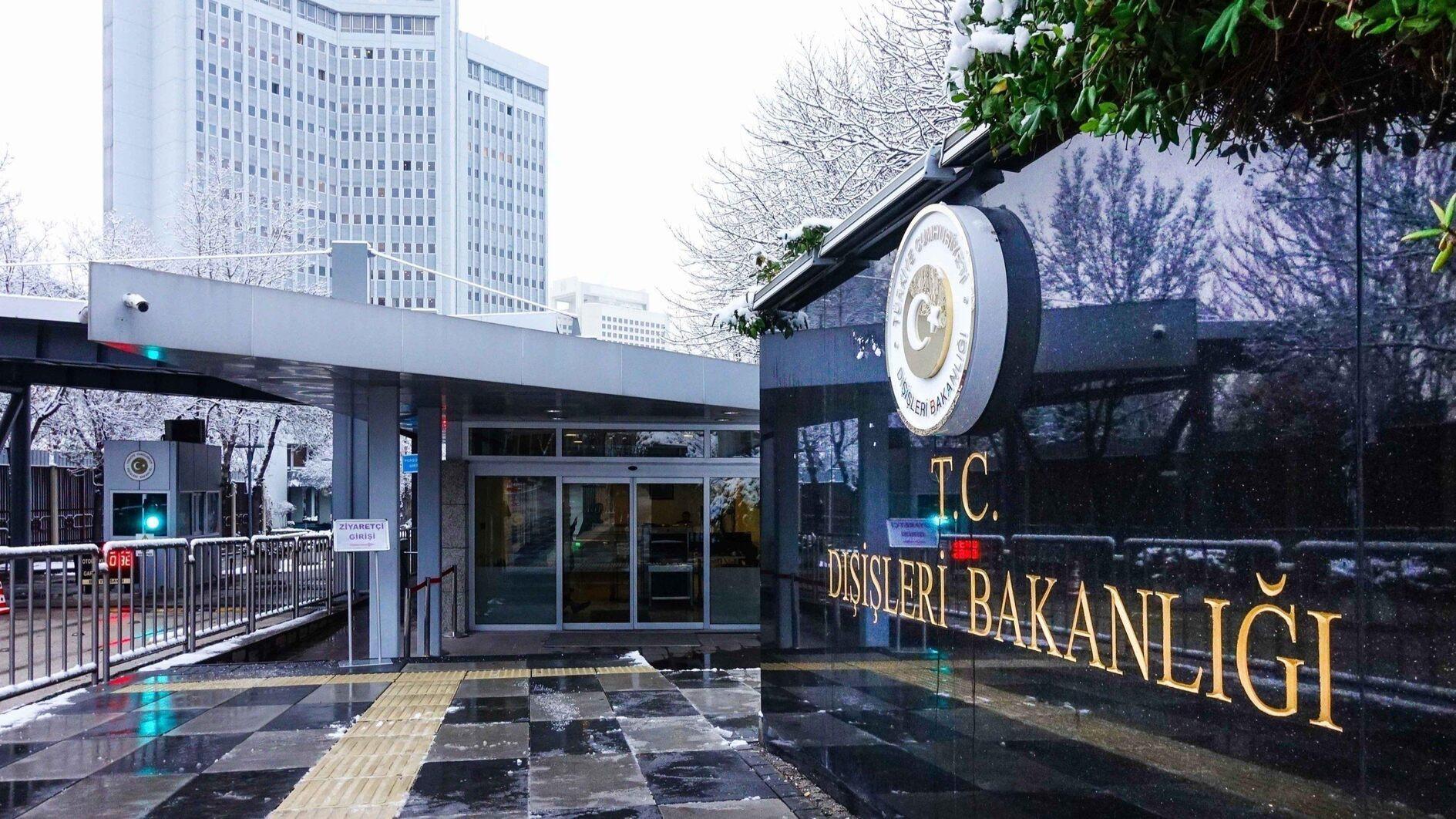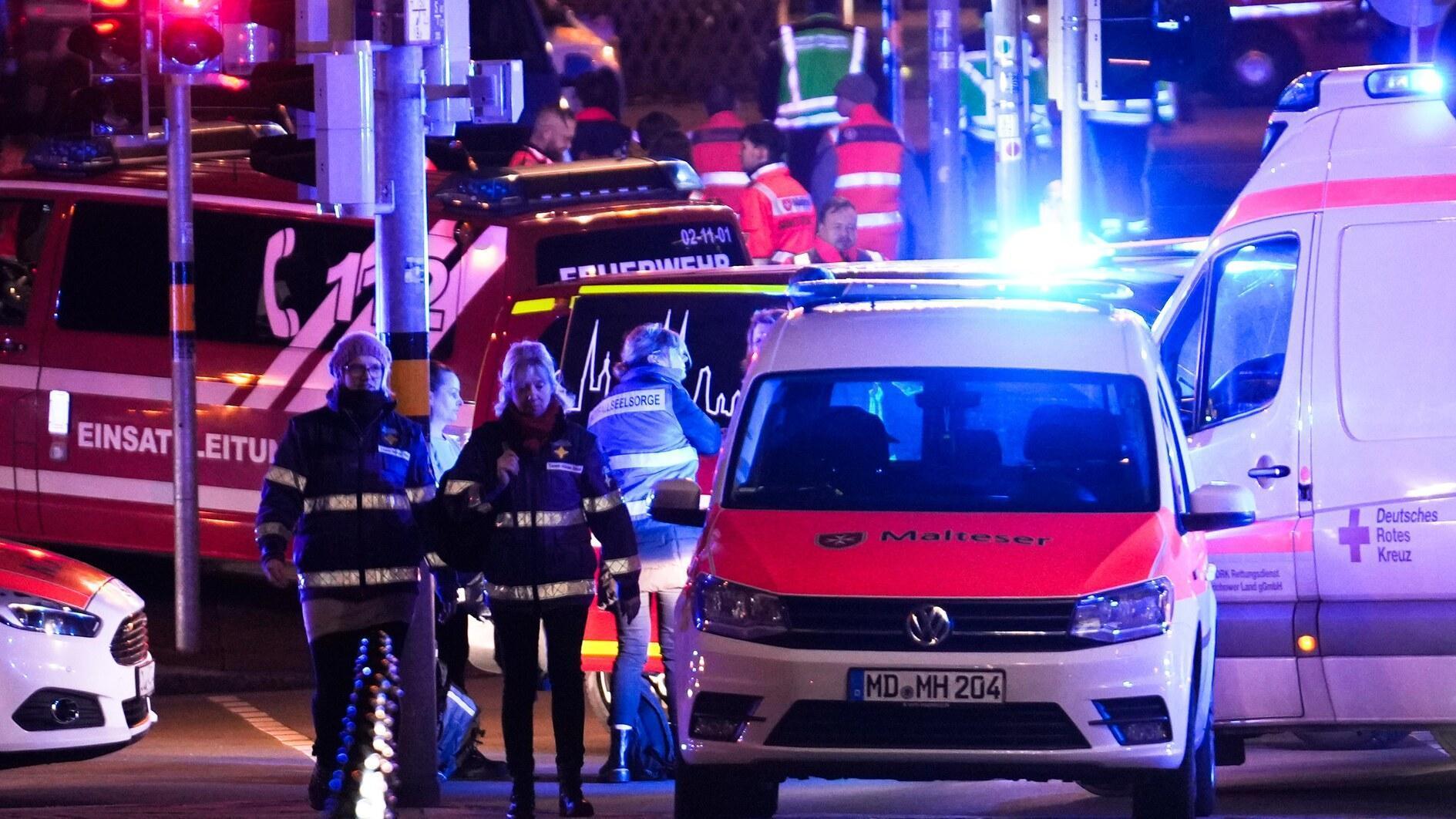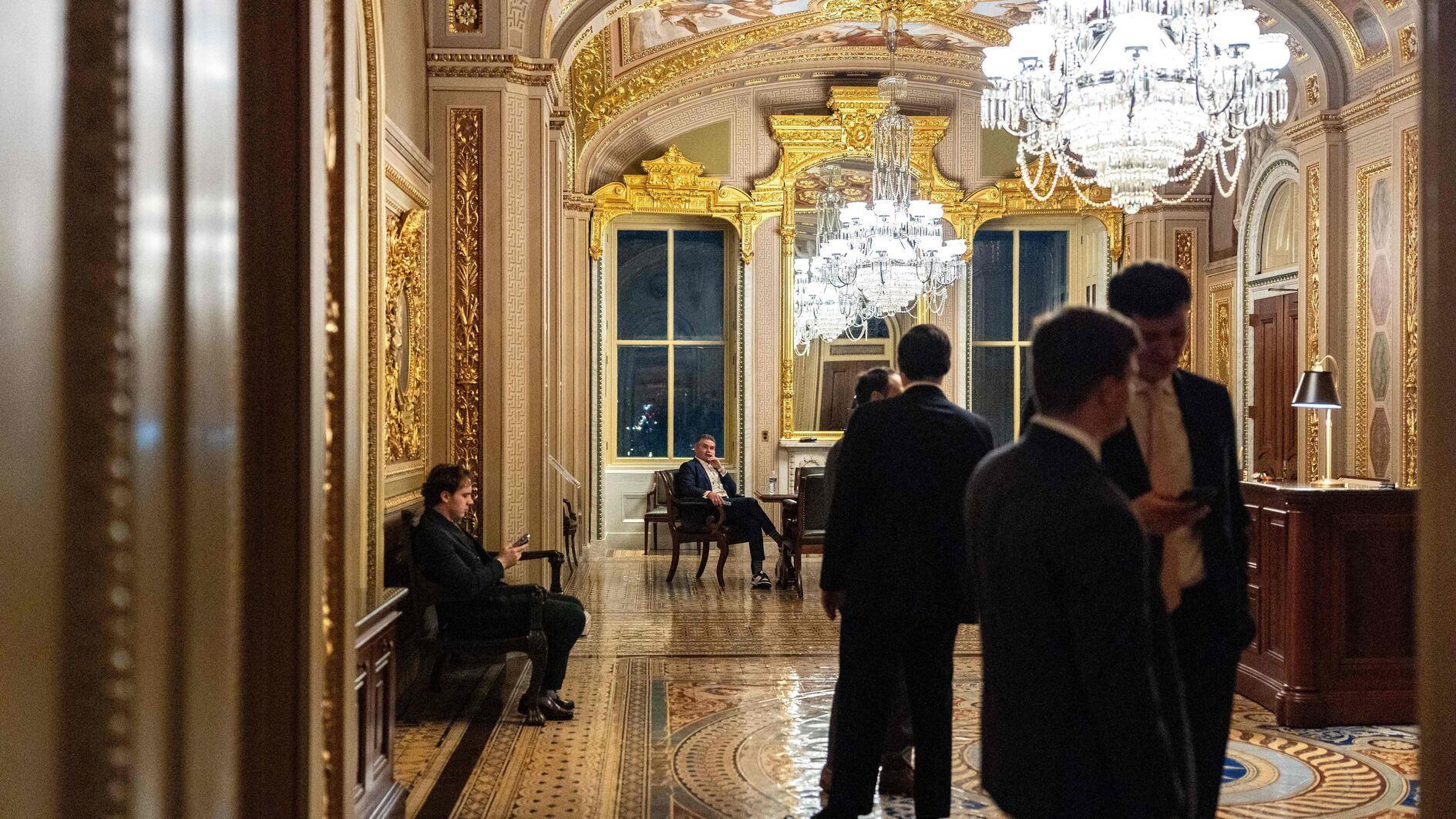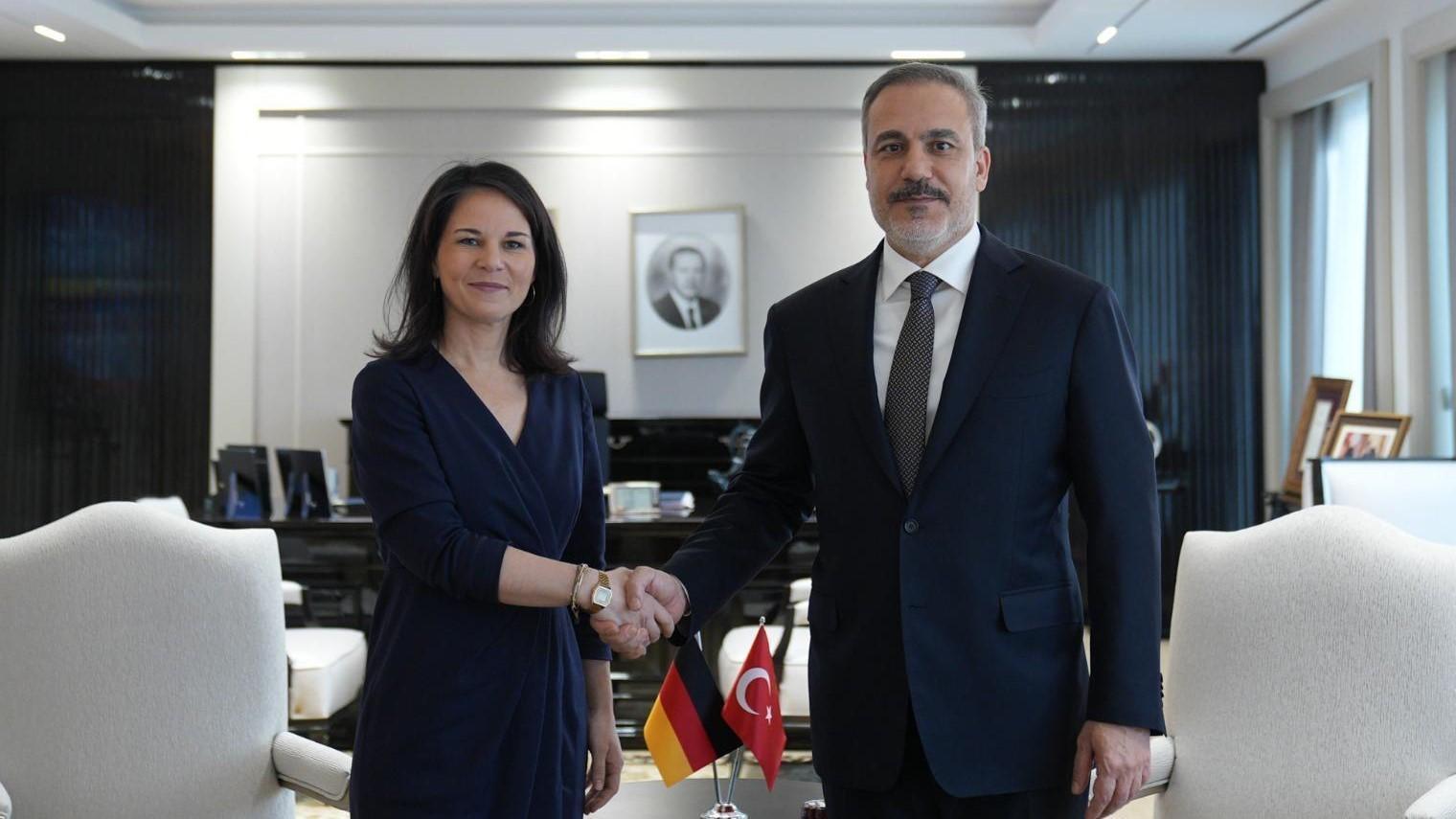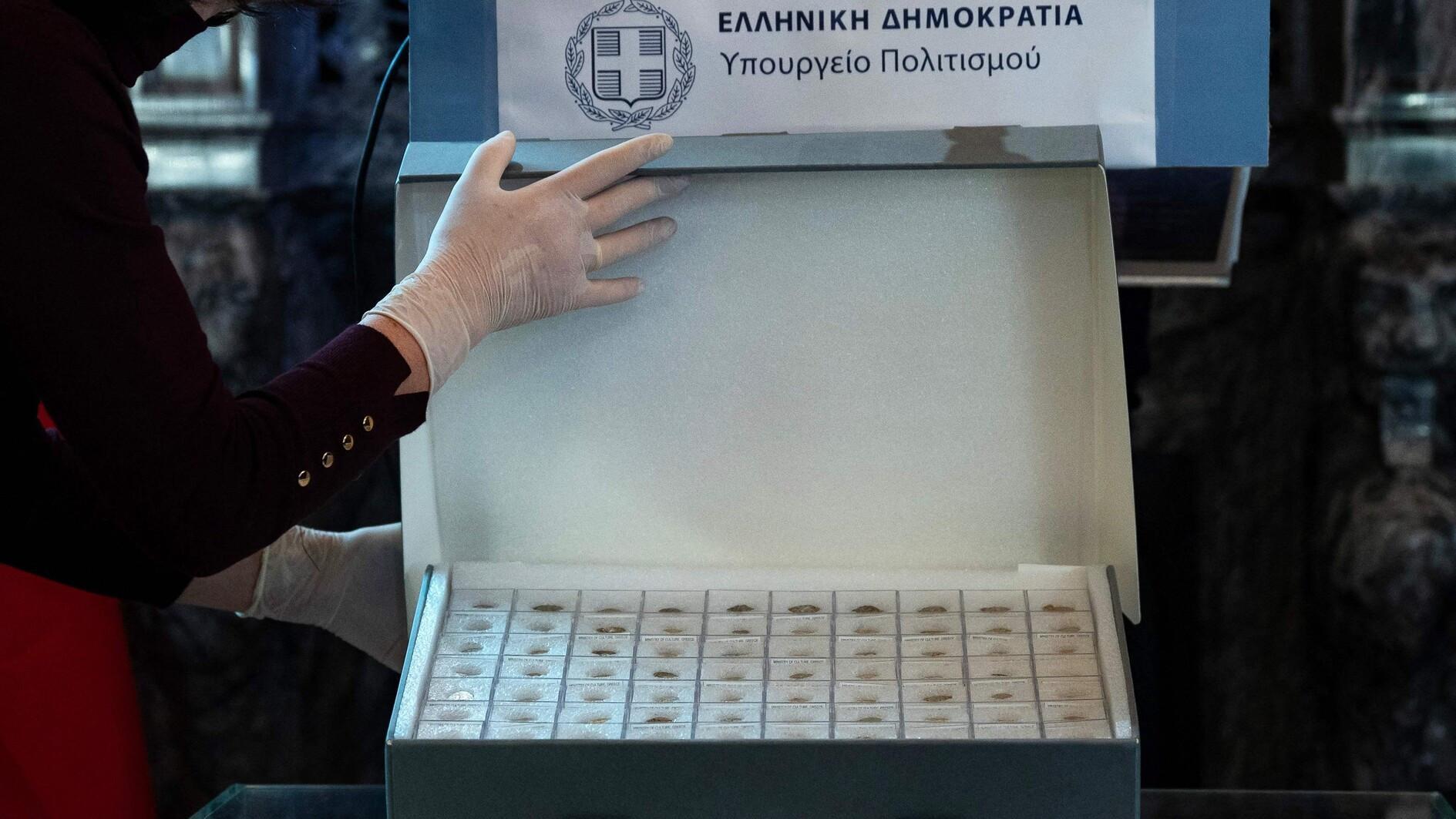US envoy arrives as Egypt freezes assets of top Islamists
CAIRO - Agence France-Presse
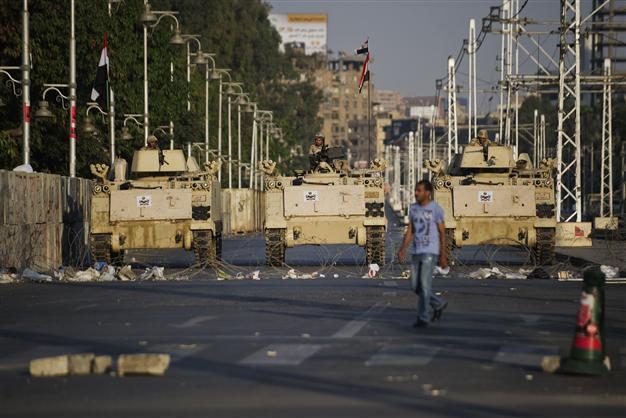
Egyptian man walks by as Egyptian Army Armoured Personel Carriers are stationed outside the Presidential Palace on July 13, 2013 in Cairo. AFP Photo
A senior US official flew into Cairo early Monday, hours after Egypt's prosecutor ordered the freezing of assets belonging to 14 top Islamists.Under Secretary of State Bill Burns, the first US official to visit since the overthrow of president Mohamed Morsi, is scheduled to stay there until Tuesday, the US State Department said.
Burns will push for "an end to all violence and a transition leading to an inclusive, democratically elected civilian government" at meetings in Cairo with various parties, it said.
His visit comes as the new regime applies increasing pressure on Morsi's Muslim Brotherhood, already in disarray with key figures detained and others on the run.
And it comes hours before opponents and supporters of Morsi are due to hold fresh demonstrations in the capital.
International concern is mounting over the detention of Morsi, Egypt's first freely elected president, who was toppled in a popularly backed military coup on July 3.
The US administration has still not decided whether he was the victim of a coup, which would legally require a freeze on some $1.5 billion in vital military and economic US assistance to Cairo.
On Sunday, two influential Republican US lawmakers, Senator Lindsey Graham and Senator John McCain, urged the administration to cut the aid in response to the coup.
The same day the European Union's foreign policy chief Catherine Ashton called for a swift return to civilian, democratic rule and the release of political detainees.
The Brotherhood has refused to join the new government headed by caretaker prime minister Hazem al-Beblawi, who is pushing ahead with talks on forming his cabinet.
The ultra-conservative Islamist party Al-Nur also confirmed it will not join the interim government. Spokesman Nader Bakkar told AFP: "We would participate only in an elected government." Among the appointments confirmed on Monday was prominent liberal leader Mohamed ElBaradei, 71, as interim vice president for foreign relations.
Beblawi is expected to unveil his full cabinet Tuesday or Wednesday. His priorities include restoring security and preparing for parliamentary and presidential elections.
The assets freeze against nine senior Brotherhood figures is part of an investigation ordered by chief prosecutor Hisham Barakat.
Those targeted include leader Mohamed Badie and five Islamists from other groups including ex-militant faction Gamaa Islamiya, judicial sources said.
The investigation relates to four deadly incidents since Morsi's overthrow, including clashes in Cairo last Monday in which dozens died.
The order comes a day after prosecutors received criminal complaints against Morsi, Badie and other senior Islamists, with a view to launching a formal investigation.
Morsi has not been seen in public since being overthrown.
In his first public comments since deposing the Islamist leader, military chief General Abdel Fattah al-Sisi said the army acted after Morsi rejected a referendum on his presidency.
The interim leaders say Morsi is being held in a "safe place, for his own safety".
But the United States and Germany have already called for his release. Washington has also condemned the arrests of Brotherhood members.
The prosecutor said on Sunday that 206 out of a total of 652 people arrested over fatal clashes in the past week had been released on bail.
In the lawless Sinai peninsula on Monday, militants killed at least three people and wounded 17 when they fired on a bus carrying workers in the North Sinai town of Al-Arish, security and medical sources said.
Military spokesman Colonel Ahmed Aly said in a statement that a "terrorist group" had been targeting a police vehicle but hit the workers' bus by mistake.
The attack came hours after fighting erupted between gunmen and the army near Israel, in the Sinai peninsula, which has witnessed a number of deadly attacks in the past week, security sources said.
But the worst violence since the military coup took place outside the elite Republican Guard's Cairo headquarters on July 8.
On that day, 53 people, mostly Morsi supporters, were killed in what the Brotherhood described as a "massacre" by the security forces.
Interim president Adly Mansour has set a timetable for elections by early next year, following a roadmap drafted by the military.
During his single year of turbulent rule, Morsi was accused of concentrating power in Brotherhood hands, sending the economy into freefall and failing to protect minorities.
But his supporters say his overthrow was an affront to democracy, and the Brotherhood is planning more mass protests on Monday, including at the Republican Guard headquarters.
Rival protests are also planned in Tahrir Square and at the Ittihadiya presidential palace by the main coalition that had called for Morsi's resignation.


